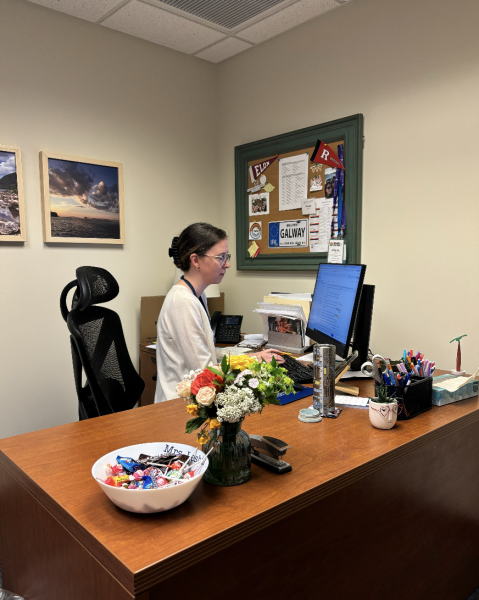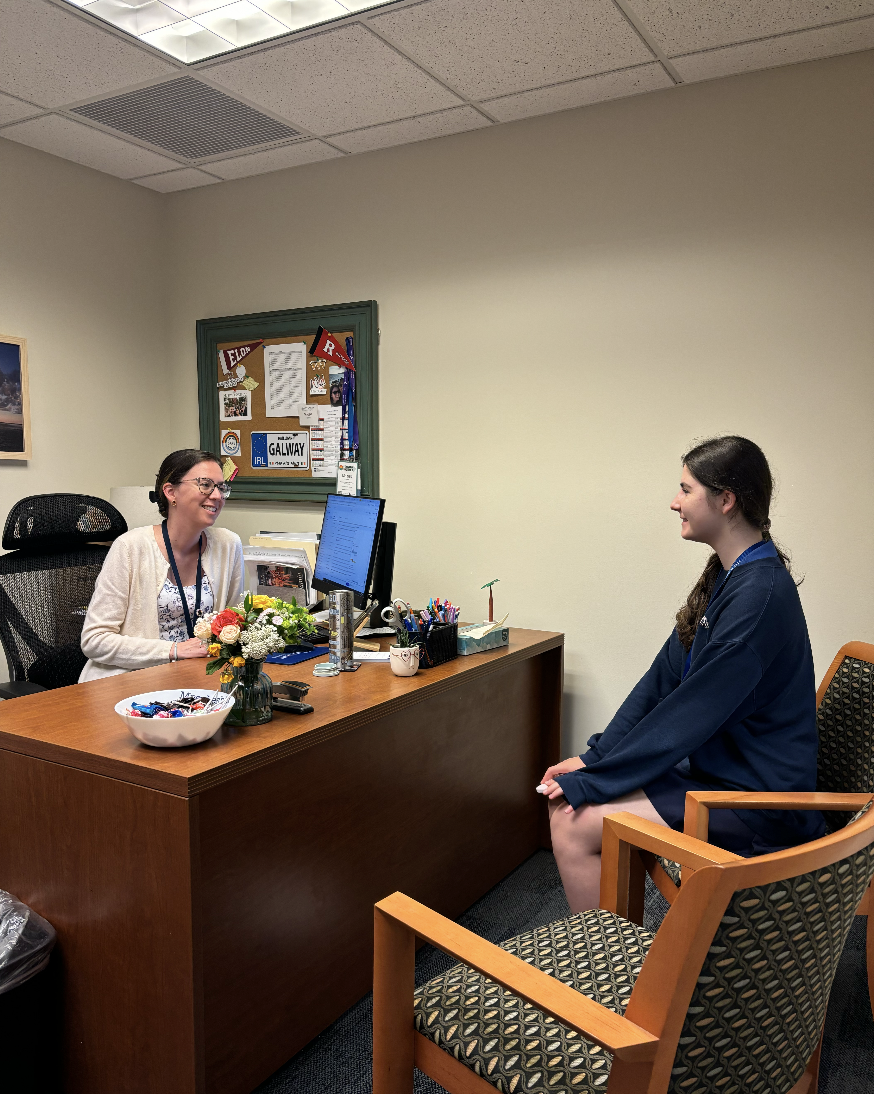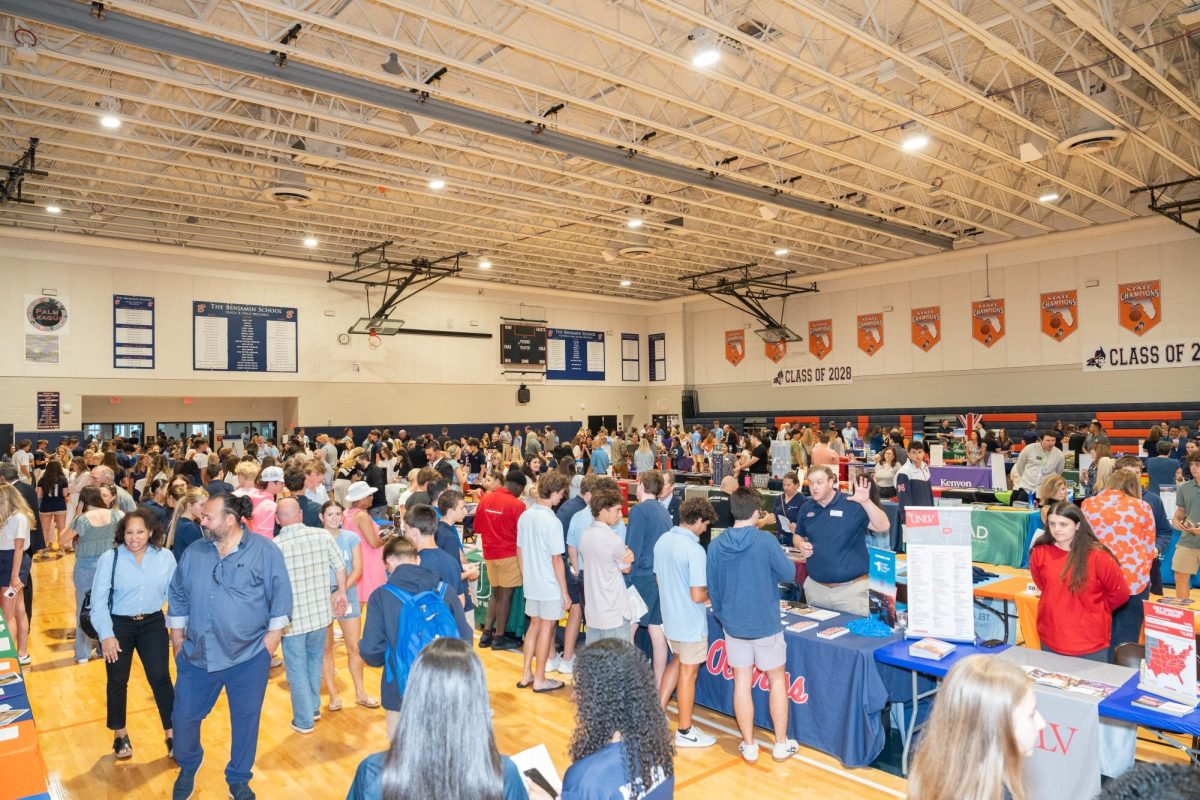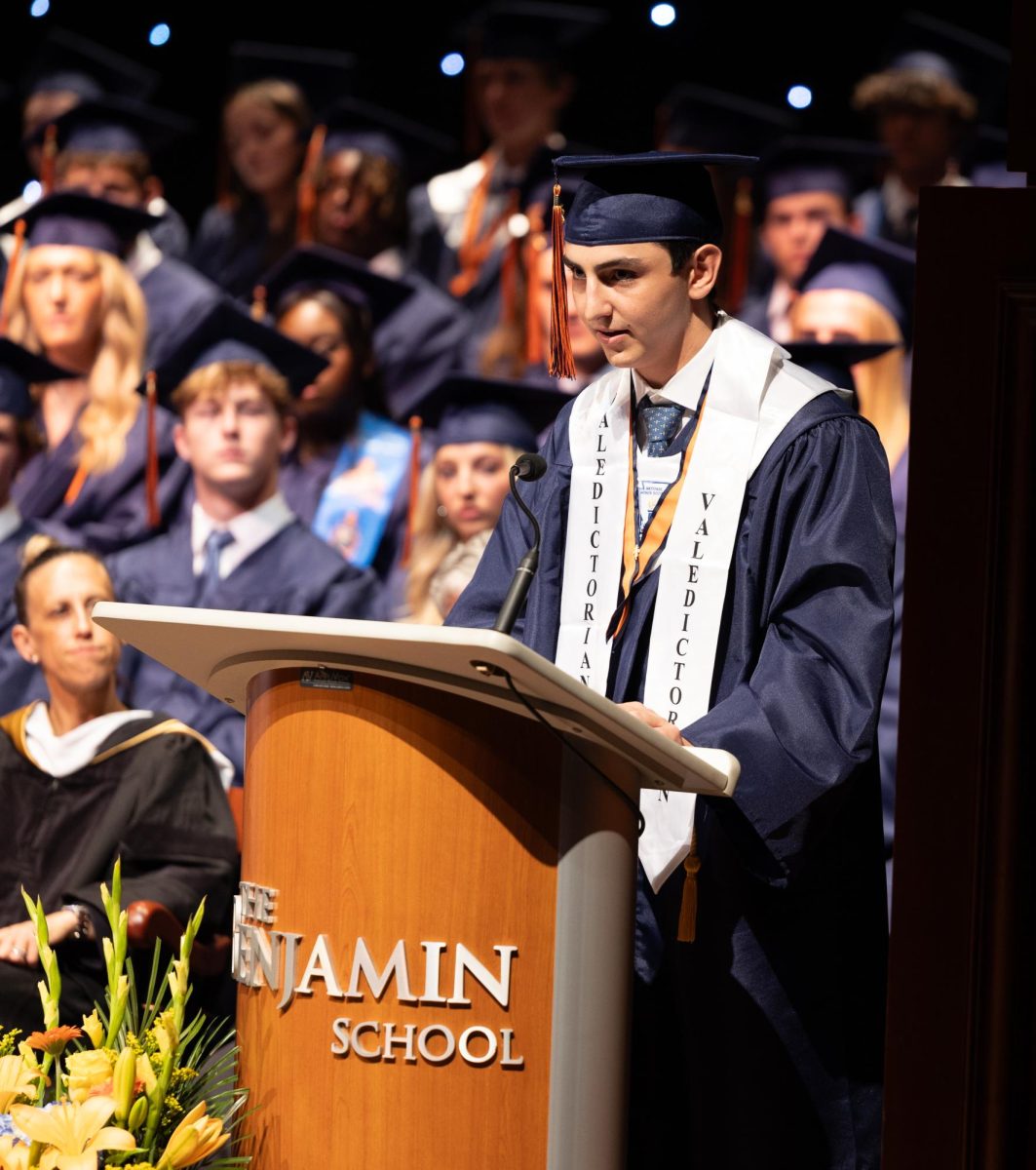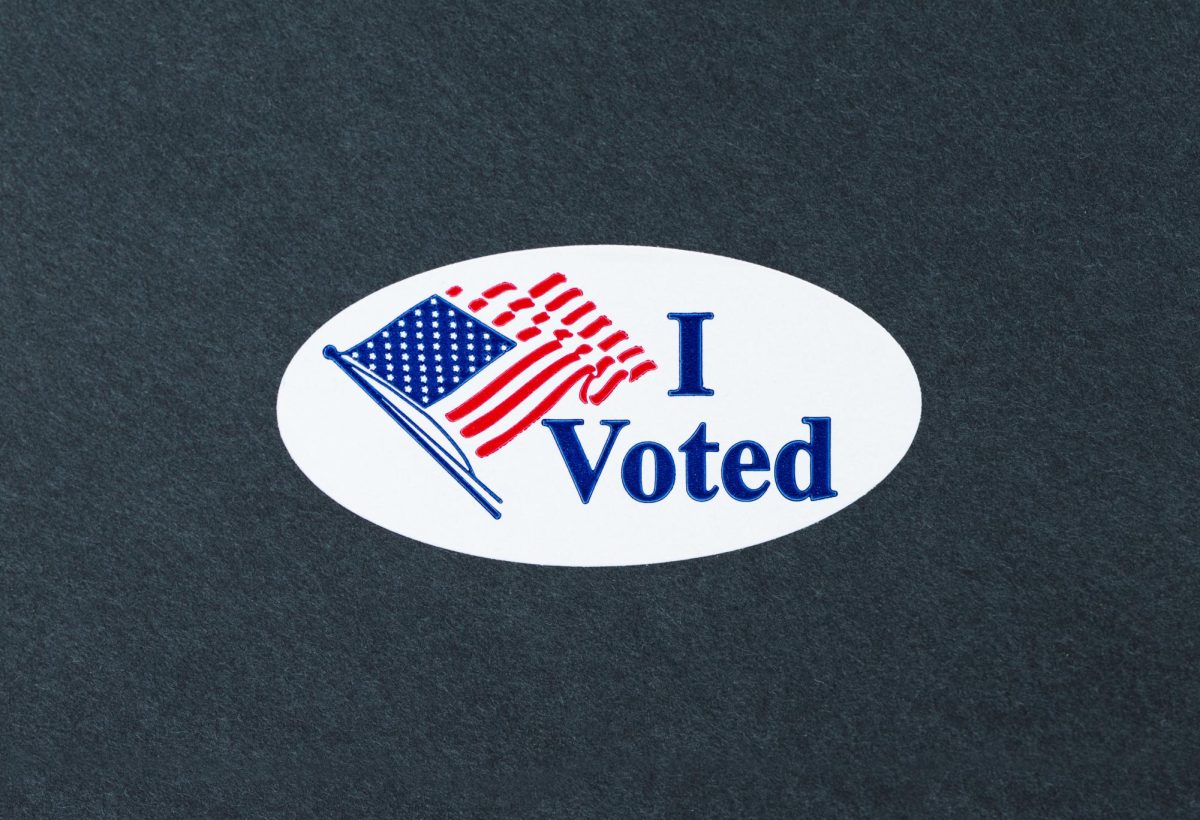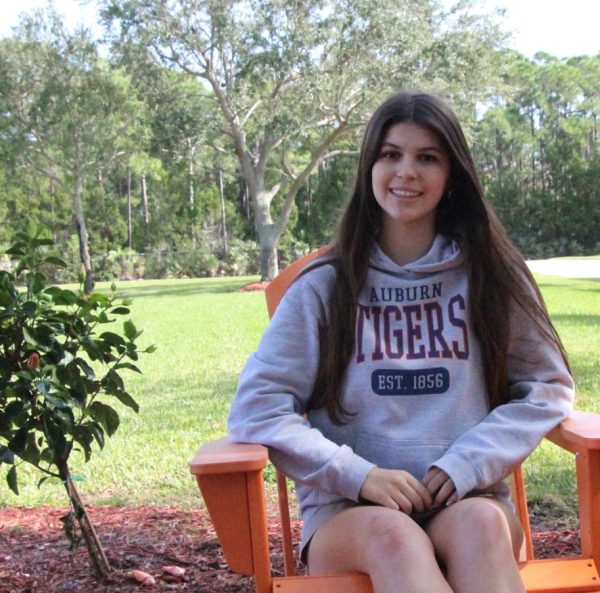College counselors help you to create your future. They help set up class schedules, help the transition from grade to grade, and make sure students have someone they can trust. Unfortunately, in the Upper School, students are not assigned their specific college counselor until late Sophomore year, soon after the Seniors are done with their college applications. An earlier assignment would further enhance the student-counselor relationship, providing priceless value to our program.
Transitioning from middle school to high school is a big step. More work can take a toll on the students if they are not prepared.
“Going to the middle school helped me prepare for high school in some ways, but it was still a major jump. I wish I took the first semester more seriously to help me set up for the future,” says Freshman Samantha Haueisen.
College counselors can help guide rising freshmen so that they can remain on top of their work, and grades, and understand how important it is to take freshman year seriously to have a good GPA.
Currently, the College Counselors have meetings with freshmen during lunch and are trying to figure out more ways to meet with them. “We want them to feel comfortable with all the college counselors and feel free to ask any questions,” said Mrs. Anna Wright, Director of College Counseling. Most freshmen would say these meetings are a success, as they feel comfortable, but they still would like a more personalized relationship.
Having a college counselor earlier can also help students set up their schedules for the four years at high school. Making sure they have honors, APs, and all their credits done in an orderly fashion.
“I am taking honors Spanish three right now and APUSH, they keep me on my toes and are helping me boost my GPA,” says Sophomore Marlee Schwab.
A college counselor could help students like Schwaab better understand the stress of making sure their credits are done in time because they have two to three years left of high school. Sometimes the message gets lost in big group settings; individual meetings could help in these situations.
“I have not taken HSB yet, and I most likely will take it as a Junior or over the summer,” says Sophomore Emma Markin.
Markin’s confusion could be helped if she had an existing bond with her dedicated college counselor. It would take some of the guesswork out of the process, and allow her to benefit from the counselor’s experience. It would also allow the counselor to begin to learn more about Markin’s process and approach.
Having a college counselor can also help athletes get recruited and help them manage their time. Knowing what to do to get the coaches attention and what they need to do to make sure they have time to email and talk to coaches.
“I am trying to get recruited for volleyball and my coach for my club team is helping me, but I sometimes have to miss school to make sure I am at tournaments to have coaches look at me,” says Sophomore Riley McCaughey.
While the athletic department offers advice and mentorship to athletes like McCaughey, a college counselor could provide more long-term, targeted advice and connections for students and families who are aiming to play beyond high school.
Perhaps the largest impact that early assignment of counselors would have is on the application process itself. Counselors are asked to create school reports and letters of recommendation for their seniors if their relationship earlier, these documents would be more personal and meaningful.
While we have an amazingly supportive college counseling department, it can be made more personal. Even Mrs. Wright seems to agree: “We wish we could see the underclassmen more, but we are helping the seniors with applications and preparing and meeting with juniors we do not have much time to. Perhaps spending more time with students during 9th and 10th grade could lead to them needing less time when they are juniors and seniors.
